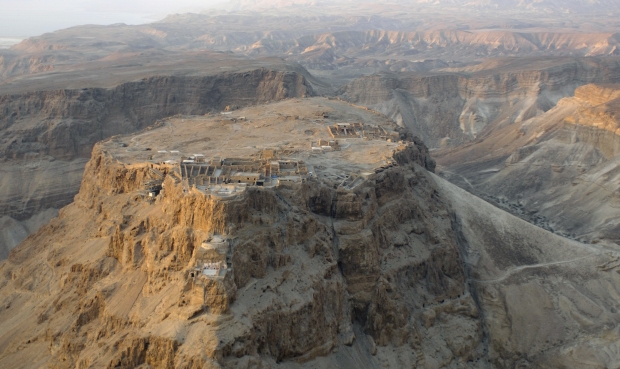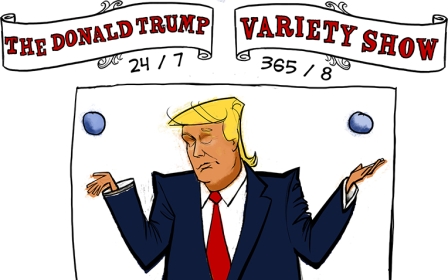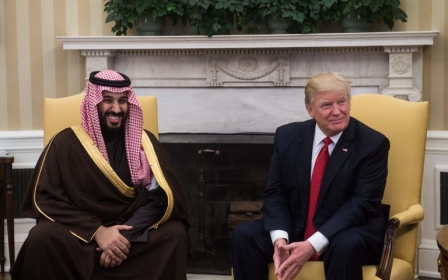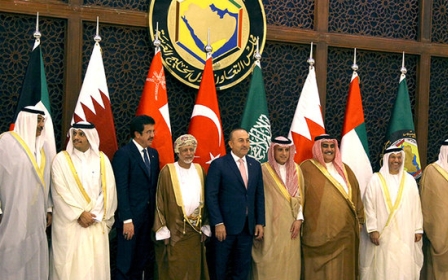In the shadow of controversy, Trump heads east into a disastrous 'Sunni pivot'
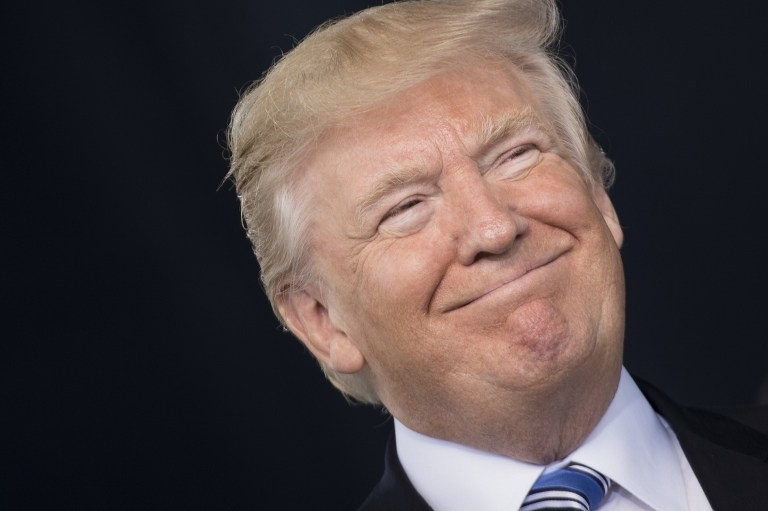
As US President Donald Trump prepares for the very first foreign visit of his presidency, a major intelligence scandal and another controversy hang over his head.
His first stop will be Saudi Arabia, where he will rub shoulders with many of the leaders of the Arab world in a conference devoted to Arab relations with the US. It will be his first opportunity to meet all the region’s major players including leaders of Saudi Arabia, Egypt, Turkey, Jordan, Iraq and Pakistan.
But a heavy cloud hangs over the visit even before it begins. Intelligence officials within the administration have told at least two US newspapers that the day after Trump fired FBI director James Comey - because he refused to close an investigation into possible collusion with Russia - he met with Russian Foreign Minister Sergei Lavrov and ambassador Sergey Kislyak in the Oval Office.
During the meeting, government sources claim that the president compromised a major foreign intelligence operation which had infiltrated the Islamic State (IS) group. The secret project had garnered important information that the Islamist group was planning to use laptop computers to smuggle bombs onto commercial airliners.
Outing Israel
Late on Tuesday, Israeli sources confirmed to several US journalists that its intelligence services were the source of the information Trump leaked to the Russians.
According to Israeli military sources who spoke with Buzzfeed’s Sheera Frenkel, Israel infiltrated IS operations and learned of the laptop bomb plot. The source intimated that the information was gained through human intelligence (HUMINT), rather than the SIGINT intelligence of its the Israeli Defense Forces' Unit 8200.
It is possible that intelligence officials themselves may be leery and more protective of their secrets with their American counterparts
Frenkel reports that Israeli intelligence officers are furious at this compromise of such a valuable intelligence operation. They are demanding to know whether such intelligence sharing with the US will continue given the ease with which Trump compromised this one.
Because the Trump administration is considered by the Likud government to be the friendliest to Israel’s nationalist ambitions in history, it’s doubtful the leak will cause long-term damage to the relationship. But it is possible that intelligence officials themselves may be leery and more protective of their secrets with their American counterparts. This, in turn, could endanger US citizens who could be the victims of future terror plots.
It's noteworthy that just before the Obama administration left office, US embassy personnel in Israel warned their Israeli counterparts to protect their intelligence information and not share it with incoming Trump officials. The Obama diplomats predicted that the new administration would leak like a sieve, which is what has indeed happened.
The new pivot
During the Obama administration, foreign policy experts noted a transformation of US policy away from our traditional concerns with the West and toward China. It was called the “Asia pivot”. Now, Trump’s visit to Saudi Arabia suggests a pivot of a different sort.
The major P5+1 deal which the previous administration negotiated curbed Iran’s nuclear programme from achieving nuclear breakout at least by 10 years. To achieve this, Obama faced the wrath of many of our traditional Sunni allies, chief among them Saudi Arabia.
Saudi anger at the US rapprochement with Iran drove them straight into the arms of Israel, which also saw the Iranians as an arch-enemy. For the past few years, Israel has touted its growing bromance with the Gulf states, which has led to security cooperation agreements and rich commercial deals for Israeli security contractors.
Donald Trump has made no bones about his profound dissatisfaction with the Iran nuclear deal. Though he hasn’t renounced it, he’s done virtually everything short of that. Into this complex set of regional relationships, the president walks this weekend.
Trump is expected to offer a US blessing to this policy “reset”. Henceforth, US policy appears ready to abandon normalising relations with Iran. It would mark a return to the dark days of the early 2000s when Israeli and US officials regularly warned that “all options were on the table” (i.e. military attack) when it came to addressing the Iranian nuclear threat.
The notion seems to be that the US will act as Israel’s guarantor while the Saudis will act as the Palestinians’ godfather
An important motivation for this Sunni pivot is that the president seeks to engineer an Israeli-Palestinian peace deal. For months, we’ve been hearing from anonymous administration sources that the Saudis could be key players in “persuading” the Palestinians to accept a brokered deal with Israel.
The notion seems to be that the US will act as Israel’s guarantor while the Saudis will act as the Palestinians’ godfather. The two states will cook up a deal and then serve it to their proteges, who will feast upon it heartily. So such a scenario goes.
There are several problems with this. First, while Saudi Arabia has wielded influence with the Palestinians as a result of its bestowal of large amounts of financial aid upon them, it has largely pulled back from such commitments amid the collapse of oil revenue.
Second, if they wield any influence, it is only over Fatah and the Palestinian Authority (PA). The Saudis have no influence over Hamas, which has been closer to Iran in the past.
Any plan which omits a role for Hamas as this one surely does, seems doomed. The Islamist group not only controls Gaza, it also has major support in the West Bank, though it faces constant PA repression there. Freezing Hamas out and imposing a settlement that addresses only the PA and Fatah seems a recipe for disaster.
When unrest again roils the Arab world, we will have aligned ourselves with the suffocating forces of the status quo
Third, Fatah’s political support even in its West Bank heartland is waning. In municipal elections this week, its candidates were trounced. Its leadership is old and corrupt and not responsive to the needs of ordinary Palestinians. How a Saudi monarchy that is itself sclerotic and kleptocratic will rally Palestinians to accept an imposed peace deal is difficult to foresee.
Finally, in order to gain the acceptance of a far-right Israeli government which feels it has gained leverage with the US that it has been denied for decades, the proposed peace deal will have to be considerably watered down.
It would be a deal that offers less than even Obama administration negotiators did. No matter how battered Palestinians may feel, will they be so desperate they will sign a deal which offers them little or nothing of what they’ve struggled for since 1967?
Aligning with suffocating forces
A Sunni pivot also promises to align the US with Arab states ruled by a series of strongmen, generals and dictators. They represent an authoritarian model that doesn’t bode well for future relations with the region.
Though the Arab Spring eventually faced a decisive backlash which broke its back in places like Egypt and Bahrain, the forces which aroused the Arab masses remain potent. They will not be denied forever. And when such unrest again roils the Arab world, we will have aligned ourselves with the suffocating forces of the status quo.
If you have a brand that is trusted, cheapening your image by straying from the product's core value often means death in the marketplace
When the US throws in its lot with such repressive regimes, it inevitably loses in the long run. It betrays ostensible American values of freedom and democracy. And it inevitably chooses the losing side: the Shah in Iran, Mubarak and now al-Sisi in Egypt, Ben Ali in Tunisia.
Though there are many differences the US has, and had, with Iran dating all the way back to the 1979 revolution, the future of the Middle East appears to lie in countries like Iran, and to a lesser extent Lebanon (and, until six months ago I would’ve said, Turkey), which have opened themselves to the technology and commerce of the West.
These are countries that are again, not unilaterally and perhaps haltingly, turning toward the West while refusing to renounce their own religious traditions and culture. The Sunni states have largely eschewed such an approach. They remain mired in kleptocracies with authoritarian rulers doling out welfare for cronies. They look inward and see the outside world as a threat.
By siding with these regimes, America aids and abets repression. Its own international reputation is tarnished and weakened. Who will benefit? Its rivals in Moscow and Beijing. They don't pretend to have any political or philosophical values to export to the world.
They only have money, influence and power to peddle (along with advanced weapons systems). Speaking in the language of modern consumerism, if you have a brand that is trusted, cheapening your image by straying from the product's core value often means death in the marketplace.
Trump's speech at Masada
During his scheduled visit to Israel, Trump had originally planned to speak at Masada and make a private pilgrimage to the Western Wall, a sacred site for Israeli Jews.
Masada was a winter palace and fortress built by King Herod. In 70 CE, Jewish militants holed up in it at the close of the second Roman rebellion. Due to meticulous preparation and technological ingenuity, they held out against a far superior Roman force for over a year.
Permitting Trump to speak at Masada was like Michael Corleone delivering a homily at St Peter's or Coca Cola shooting a commercial at Arlington National Cemetery
When the Roman's launched their climactic assault, the historian Josephus wrote that the leader of the militants, Eleazar Ben Yair, convinced everyone to commit suicide rather than be captured alive. They knew that the Romans would likely parade them before their fellow Israelites in chains and then crucify them as an example of what happens to those who rebel against Rome.
Rather than face such humiliation, they determined to control their own fate. Thus, they marched into the annals of Jewish (and Zionist) history.
This martyrdom myth (there has been no historical or archaeological evidence that supports Josephus' account) resonates deeply in the Israeli psyche.
On Tuesday, US national security advisor HR McMaster announced that, contrary to original plans, Trump would not be visiting Masada. The reason offered was that an Israeli air force regulation prohibits helicopter landings at the site. But since this was a long-planned event, it’s mystifying why the regulation would be invoked this late in the preparations for the visit.
The Israelis offered to permit the president's delegation to land at the base of Masada and take cable cars to the summit. The White House rejected the offer and he will speak instead at the Israel Museum. Given the “physical demands” of exiting a helicopter and walking to the cable car, the reason Trump refused the Israeli offer may lie in this explanation.
But why did Trump choose this venue to address the Israeli people in the first place? Other presidents have accepted the ultimate national honour, addressing all Israel in the rostrum of the Knesset. Obama, denied this privilege as punishment by the Netanyahu government, had to resort to addressing Israel in a concert hall.
But Masada? No president has ever chosen this as a venue to address the Israeli people. I don't even believe any Israeli leader has made a political address there.
For me, it would have had all of the pageantry of Hitler at Nuremberg. An American president would have been reinforcing all the worst nationalist impulses of Israel
To add to the oddity of it all, six years ago Trump inquired whether he could use Masada as the venue for his Miss Universe Pageant. Thankfully, someone in Israel thought it not the wisest choice. Yet he had planned during this visit to bring 1,000 of his closest friends with him to a Judean summit.
What would he have told Israel from the heights of Masada? How national self-suicide is an admirable destiny? How Israelites launching a hopeless rebellion against the most powerful nation in the known world was a worthy choice?
For me, it would have had all of the pageantry of Hitler at Nuremberg. An American president would have been reinforcing all the worst nationalist impulses of Israel.
I've asked Israelis and they’ve never heard of political speeches delivered at Masada. Not even by Israeli prime ministers. It's a place above politics. Hallowed ground. Permitting Trump to speak there was like Michael Corleone delivering a homily at St Peter's or like Coca Cola shooting a commercial at Arlington National Cemetery. Has any political figure delivered any speech at Arlington? The very thought is unthinkable.
Can you imagine Ayatollah Khamenei or Hassan Nasrallah or even Vladimir Putin speaking to Palestine from Deir Yassin or any other location of immense Palestinian national suffering?
How would Palestinians have viewed Trump's speech from there? The PA rump-President Mahmoud Abbas recently had his first meeting with Trump, in which the latter told him he plans to be “a mediator or an arbitrator or a facilitator”. But how could he if he had addressed the Israeli people at Masada? You can't be even-handed when you ennoble Jewish mass suicide.
Can you imagine Ayatollah Khamenei or Hassan Nasrallah or even Vladimir Putin speaking to Palestine from Deir Yassin or any other location of immense Palestinian national suffering? What message would that send to Israelis?
Western Wall woes
Another controversy shadowing Trump’s visit broke out when Netanyahu aides angrily reported that US diplomats from the East Jerusalem consulate refused (according to the Israeli side) its assistance in coordinating Trump’s private visit to the Western Wall.
As the Israelis tell it, the American diplomats told their Israeli counterparts that Israel had no right to be involved as the Wall is in East Jerusalem and, as such, is not under Israeli sovereignty.
I can’t imagine any US diplomat saying something so foolish. My guess is that the Israelis see a Trump visit to the Kotel – Western Wall in Hebrew - as a public relations bonanza for the “Jewish state”.
I can easily imagine the Israelis making demands that would exploit Trump for hasbara purposes: perhaps a joint visit with Netanyahu or placing Israeli flags in the background as Trump prays before the sacred stones.
I can easily imagine US diplomats, sensitive to how such images would appear to the Muslim world, objecting to such arrangements. That is a far more likely scenario than what the Likud operatives have suggested.
Finally, the symbolism of Donald Trump's first overseas trip including only Israel and Saudi Arabia (and the Vatican) is foolhardy. Think of all the intractable problems the US faces in the world. Think of the rivals who are causing it anguish. Though there have been White House visits from Chinese and British leader, a Trump visit to Moscow, for example, would be impossible considering how compromised he is by his Russian connection.
But what about allies and neighbours? Canada, Mexico, Germany, France, UK, South Korea, Japan. Are they less important than Israel and Saudi Arabia?
This trip is a sign that this president's priorities are ill-conceived. There is no strategy behind his foreign visits, nor can they further our interests. They will continue the scatter-shot, shoot-from-the-lip approach that characterises Trump's personality and style of governance.
- Richard Silverstein writes the Tikun Olam blog, devoted to exposing the excesses of the Israeli national security state. His work has appeared in Haaretz, the Forward, the Seattle Times and the Los Angeles Times. He contributed to the essay collection devoted to the 2006 Lebanon war, A Time to Speak Out (Verso) and has another essay in the upcoming collection, Israel and Palestine: Alternate Perspectives on Statehood (Rowman & Littlefield).
The views expressed in this article belong to the author and do not necessarily reflect the editorial policy of Middle East Eye.
Photo: US President Donald Trump during Liberty University's commencement ceremony in Lynchburg, Virginia in May 2017. (AFP)
New MEE newsletter: Jerusalem Dispatch
Sign up to get the latest insights and analysis on Israel-Palestine, alongside Turkey Unpacked and other MEE newsletters
Middle East Eye delivers independent and unrivalled coverage and analysis of the Middle East, North Africa and beyond. To learn more about republishing this content and the associated fees, please fill out this form. More about MEE can be found here.




